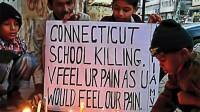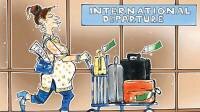Interviews with filmmakers
We’ve been bemoaning the loss of our cinema for years now, hoping against hope that maybe the revival will come from the industry, the broad sweep of the Gujjar’s scythe setting all things right. But it seems we’ve been looking in the wrong quarters.
When French cinema reached a certain dénouement around the 40s and 50s, it was the nouvelle vague, led by the likes of Goddard, Truffaut, Rohmer etc who ushered in a new and decidedly, independent era in French film, reclaiming a stake that had been so curiously lost.
The New Wave, spirited by their auteur creed, let film flourish away from the system, something whose spirit has since been inherited by other movements such dogme 95, mumblecore and so on. And perhaps, it is this same independent streak that is helping to get our film back on its feet as a slew of recent independent releases from local directors are making the rounds of international film festivals.
Pique sat down with two such filmmakers who have been promoting their films on the festival circuit and got the lowdown on their films and future projects.
Assad Zulfiqar Khan
Taking his politically charged short film, Haal starring Nighat Chaodhry half way across the world to the Oaxaca Film Festival in Mexico, among others, director Assad Zulfiqar Khan has a pretty busy schedule ahead of him as he goes on to promote the film at the Jaipur Film Festival in India. In between his jet setting he spoke about Haal and its political overtones.
Firstly a little on yourself, why film? How did you get started?
My mother likes telling me this anecdote of when I was four a family friend came up to me and asked what I wanted to do when I grew up. And I very seriously replied a ‘movie-see’er’. And while the grammatical errors of that still haunt me to this day, the passion for films hasn’t. It just evolved into making them as well as watching them.
You’ve just put out your first short film, how has the experience been so far?
It’s an extremely flawed film. It was my first project in Pakistan and let’s just say I wasn’t ready for the organised chaos that would be my set. All in all though it seems to have gotten the point across and the few private screenings that I have had, have gone really well. Plus every film you make is a learning experience. I don’t claim to have evolved into Wong Kar Wai overnight but hopefully, I might be an inch closer now.
Tell us about Haal, what inspired it?
I grew up in a really political household. Both my parents were jailed during the Zia years and I grew up knowing people who were persecuted by the regime, so this is a very personal film for me. I guess what I was trying to make was a tribute to all those who suffered at the hands of that madman.
Your film is quite politically charged, picking upon the Zia-ul-Haq era, do you see it having relevance today?
I feel we can trace most of our country’s problems back to Zia, be it terrorism, religious intolerance or even the ‘biradari system’. So to me, Zia’s era is extremely relevant nowadays. We all scapegoat politicians in Pakistan and find fault with them without actually making an honest effort of understanding our past.
Will you be releasing it?
I really doubt it would pass the censors in Pakistan but I am in talks with a distribution company in Toronto at the moment — early days though so fingers crossed.
Most Pakistan films coming out nowadays tend to address social issues, yet skirt political ones, especially avoiding instances from our history, why do you think that is? Are we incapable of reflection? Or do we wish to avoid stepping on toes?
As sad as is this is (and I might be completely wrong here) but I feel Pakistan suffers from intellectual dishonesty and moral cowardice. It’s always easy to blame others so why bother introspecting? That being said we have had some films which have been spot on such as The Blood of Hussein by Jamil Dehlavi and Khamosh Paani by Sabiha Sumar.
You’re presently promoting your film on the festival circuit, what has reaction been like so far?
It’s been well received so far. People appreciate the film and see it as a jarring portrayal of society and they love Nighat Chaodhry in it. So I can’t have too many complaints.
Also many Pakistani films are making the rounds of film festivals abroad, are we the new darling?
Hah! I wish we were. I think the quality of Pakistani cinema has risen recently (even if just in the production value and quality) and different festivals go for different things. But even if one day we do become the cinematic darlings that wouldn’t be a bad thing. The more exposure Pakistani films get, the better the industry will do.
Do you think independent film is the way forward for Pakistani cinema?
I’d like to believe so. Otherwise I am really wasting my life.
What are you working on next?
I am going to be co-producing a feature film in London next year and I am currently writing three scripts (one short and two features). Hopefully, the short will be written and filmed sometime next year as well.
Iram Parveen Bilal
Having recently showcased her new film Josh, which stars Aamina Sheikh, at the Mumbai Film Festival, Iram Parveen Bilal is going places.
Having started out as an engineer, this expat has since gone on to make a couple of shorts (Poshak, Marwa) and now Josh, with a script for Shah Rukh Khan in the pipeline. Here’s what she had to say.
Firstly a little on yourself, why film? Especially since you come from an engineering background.
Film has the power of immediate impact that I feel science and engineering don’t. One is emotional and one is more practical. Which one is more important or more immediate towards change is a longer discussion. In the end, I guess I was too impatient to be a scientist only to find I need even more patience to be a filmmaker!
Tell us a little about Josh? How did it come about?
I started writing the script in 2009, raising the money at the same time as well. It took me two years to close the funding and then we planned the shoot for October 2011. Pre-production is always hell because there is so much organization to do.
I partnered with Saad bin Mujeeb of 29-1 Productions, who became my Pakistani co-producer and he and I have for the past three years been working on and off on just about everything. I won’t lie, it was very stressful and on top of it Ramadan, fell in the middle! We shot in the scorching heat of October and it was a gruelling 35-day shoot but I must tell you, there was some Godly blanket of protection over us that we finished it successfully. Hats off to a very dedicated crew.
I think I have grown five years in two thanks to all the experiences and learning. Josh is inspired by Parveen Saeed’s Khana Ghar (www.khanaghar.org) and her concept of “erase hunger to erase crime” by setting up affordable meals in and around Karachi’s slums.
It is not really inspired by Mukhtaran Mai directly but since it deals with a retribution act, she is probably the most well known in that sphere. The script and story are completely original. I guess one starts with a general idea of what one wants to say and then brainstorms on what type of characters one would want to watch or know better that could be in a scenario around one’s theme. That’s how any script really starts and that’s how Josh started after the initial inspiration. I also wanted it to be a film that showcased sides of Pakistan the international community would not know or expect.
Being a relatively young director, you’ve been able to release you’re first feature film; something that often takes others years to do. What do you put it down to?
I would attribute making Josh to the following: I think I am not obsessed for the right time to come. You have to create your time and opportunities. I set deadlines and goals and just worked towards them. If you wait for perfection, things will never happen. One needs to be realistic about what one can achieve with given resources, as they shall always be limited.
Josh has taken the festival circuit by storm, being particularly well received in India. Did you expect it to do so well?
I always hoped so. It is an honest film with a good story and stellar performances. The music is riveting. In addition, it is a window into Pakistan for the world that is starving to know more about a country that is mysterious beyond the news, so it is no surprise that it shall be an internationally acknowledged film insha’Allah.
When will we be seeing a Pakistan release?
Working on it. Stay tuned on the Facebook page (www.facebook.com/thefilmjosh)
Do you think Sharmeen Obaid-Chinoy’s Oscar has helped Pakistani filmmakers — especially female directors like yourself?
It has certainly put Pakistan on the map for the Oscars but it was a documentary. Pakistan has been known for ‘issue’ documentaries.
I don’t think it has necessarily changed the ground realities for fictional filmmakers or for Pakistani filmmakers in general. It is foolish to think it will. But it is an achievement and we are proud of Sharmeen. Fiction films and documentaries at the Oscars are very wide apart. I can’t wait for us to have a foreign Oscar nomination and/or win from Pakistan soon insha’Allah.
With a recent spate of film releases in Pakistan, where do you see the industry going? Is independent film the way forward? Any directors of note?
I am hoping that when the movement is ground up as it is, then it is unstoppable. When the feudalism of the industry shall stop, then original stories and filmmakers shall come forth and the palette of films will be wide. The audiences are starving for Pakistani films, in my opinion. Much like the TV industry boomed in the past five years, I think so shall cinema. I am excited about Afia Nathaniel’s upcoming film.
What’s next for you? Any Hollywood or Bollywood projects?
I have returned to my first script that I wrote for Shah Rukh Khan. I am polishing it. It is part based in South Asia and part in the West. Making a film s a long journey, let’s just first get the script in top form, then we can figure out where it shall be made.
The writer is an art critic based in Islamabad.
























